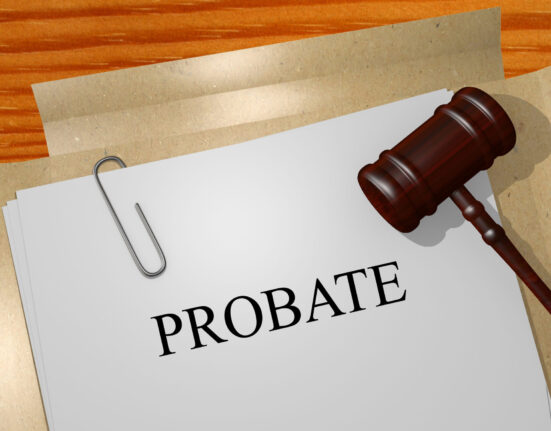H. Aishwarya, a 4th-year B.A.LL.B.(Hons.) student from PES University, Bengaluru has written this Article on “Legislation as a source of law under Jurisprudence“
Introduction
In the realm of jurisprudence, the question of what constitutes a source of law has been a subject of considerable debate and scholarly exploration. While various theories and philosophies attempt to elucidate the nature and origins of law, legislation stands out as one of the most prominent and influential sources of law in contemporary legal systems worldwide. This article delves into the concept of legislation as a primary source of law in jurisprudence, exploring its historical development, its role in modern legal systems, and the implications it carries for the rule of law and society.
Historical Development of Legislation as a Source of Law
The concept of legislation as a source of law has deep historical roots, dating back to ancient civilizations. While it may have taken different forms and served varying purposes throughout history, its evolution has been central to the development of legal systems.
Ancient Legal Codes
The earliest known legal codes, such as the Code of Hammurabi in ancient Mesopotamia and the Twelve Tables in ancient Rome, were early manifestations of legislation. These codes were formal written laws that established rules and standards governing various aspects of society, from property rights to criminal offenses. They laid the groundwork for codified legal systems and set a precedent for future legislative efforts.
Roman Law and the Corpus Juris Civilis
In the Roman Empire, the development of legislation reached a new level of sophistication with the Corpus Juris Civilis, a comprehensive compilation of Roman laws. Commissioned by Emperor Justinian I in the 6th century, this monumental work incorporated existing legal texts, clarified legal principles, and served as a model for legal systems across Europe. The Corpus Juris Civilis exemplified the idea that laws could be systematically organized, making them accessible and predictable.
The Common Law Tradition
While continental Europe was developing civil law systems based on codified legislation, the common law tradition emerged in England. Common law is primarily judge-made law developed through judicial decisions, but it often interacts with statutory law, which represents legislation enacted by the British Parliament. This interplay between legislation and judicial decisions laid the foundation for modern common law systems, such as those found in the United States.
Legislation in Modern Legal Systems
In contemporary legal systems, legislation has evolved into a fundamental source of law, often occupying a central role. Its characteristics and significance can be examined through the lens of modern jurisprudence.
Characteristics of Legislation
Legislation is characterized by several key attributes that distinguish it as a source of law:
- Formality: Legislation is typically enacted through a formal and structured process involving legislative bodies, such as parliaments or congresses. This process often includes drafting, debating, amending, and voting on proposed laws.
- Codification: Laws enacted through legislation are usually codified, meaning they are organized into written statutes or codes. This codification enhances clarity and accessibility, allowing individuals to understand and comply with the law more easily.
- Supremacy: In many legal systems, legislation holds a position of supremacy over other sources of law. It can override inconsistent judicial decisions and customary practices, ensuring uniformity and predictability in the application of the law.
Role of Legislation in Legal Systems
Legislation plays several crucial roles within modern legal systems:
- Expressing Public Policy: Legislative acts reflect the will and values of society, as they are the result of a democratic process. They provide a means for elected representatives to express and implement public policy.
- Filling Legal Gaps: Legislation can fill gaps in the law, addressing emerging issues and adapting to changing societal needs. It can also provide remedies for new forms of misconduct or harm.
- Providing Legal Certainty: The codified nature of legislation enhances legal certainty. People can consult statutes to understand their rights and obligations, reducing ambiguity and fostering compliance.
- Enabling Legal Change: Legislation allows for the systematic reform of legal systems. It provides a mechanism for changing or repealing existing laws to accommodate evolving social, economic, and political conditions.
Legislation and the Rule of Law
The rule of law is a foundational principle in modern democratic societies, and legislation plays a vital role in upholding this principle. The rule of law requires that laws be clear, accessible, and applied consistently to ensure fairness and justice.
Clarity and Accessibility
The legislation’s codified nature contributes to the clarity and accessibility of the law. Citizens, legal professionals, and policymakers can access statutes easily, making it possible to understand the rules that govern their behaviour. This transparency is essential for people to be aware of their rights and obligations, enabling them to act as per the law.
Consistency and Predictability
Legislation’s supremacy over other sources of law helps maintain consistency and predictability in legal systems. When statutes are enacted, they establish clear legal standards that must be followed. This consistency ensures that individuals are treated equally under the law, regardless of their social, economic, or political status.
Safeguarding Against Arbitrary Power
One of the core functions of legislation is to limit the exercise of arbitrary power by government authorities. By subjecting government actions to the constraints of law, legislation ensures that public officials act within prescribed legal boundaries. This safeguard is essential in preventing abuse of power and protecting individual rights.
Checks and Balances
In democratic societies, the legislative branch is often separate from the executive and judicial branches, providing a system of checks and balances. Legislation allows the legislature to scrutinize and challenge the actions of the executive branch, ensuring that the government functions within the framework of the law.
Critiques and Challenges of Legislation
Despite its many advantages, legislation is not without critiques and challenges in contemporary jurisprudence.
Potential for Complexity
Legislation can become complex and lengthy, making it difficult for individuals without legal training to understand and navigate. This complexity can create barriers to accessing justice and complying with the law.
Rigidity
Once enacted, legislation can be slow to adapt to changing circumstances. Amending or repealing statutes often requires a formal legislative process, which may be cumbersome and time-consuming. This rigidity can impede the legal system’s ability to respond quickly to emerging issues.
Potential for Overregulation
Excessive legislation can lead to overregulation, where the law becomes overly detailed and prescriptive. This may stifle innovation, entrepreneurship, and individual freedom. Striking a balance between regulation and freedom is a constant challenge for lawmakers.
Legislative Capture
In some cases, powerful interest groups may influence the legislative process to serve their own interests rather than the public good. This phenomenon, known as legislative capture, can erode the legitimacy of legislation and undermine the rule of law.
Legislation and Social Change
Legislation is not only a reflection of existing societal values but also a tool for effecting social change. Over time, legislation has been used to address issues of discrimination, promote equality, and protect individual rights.
Civil Rights Movement
The U.S. Civil Rights Act of 1964 is a prominent example of legislation driving social change. This legislation prohibited discrimination based on race, color, religion, sex, or national origin and helped dismantle institutionalized racism in the United States. It was a legislative response to the demands of the Civil Rights Movement.
Marriage Equality
In the early 21st century, many countries enacted legislation to recognize same-sex marriage, reflecting changing attitudes toward LGBTQ+ rights. These legal changes exemplify how legislation can both reflect and promote evolving social norms.
Environmental Protection
Legislation has played a crucial role in addressing environmental concerns. Laws and regulations aimed at curbing pollution, conserving natural resources, and combating climate change represent efforts to balance economic interests with environmental sustainability.
Conclusion
Legislation, as a primary source of law in jurisprudence, has a rich historical legacy and a multifaceted role in contemporary legal systems. It provides a framework for codifying laws, expressing public policy, and upholding the rule of law. While legislation offers numerous benefits, it also presents challenges, such as complexity, rigidity, and the potential for overregulation.
Despite these challenges, legislation remains essential for addressing societal issues, promoting justice, and adapting to changing circumstances. As society continues to evolve, legislation will continue to play a central role in shaping and defining the legal landscape, reflecting the dynamic relationship between law and society in the pursuit of justice and the common good.
Reference
https://udrc.lkouniv.ac.in/Content/DepartmentContent/SM_e803004d-fcb0-4c1e-b347-53cea35e0186_30.pdf
https://articles.manupatra.com/article-details/Legislation-as-a-Source-of-Law
https://noteguilty.com/notes/jurisprudence/g-legislation-as-a-source-of-law







Leave feedback about this